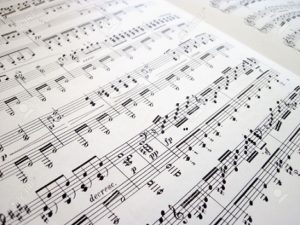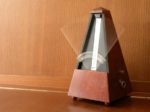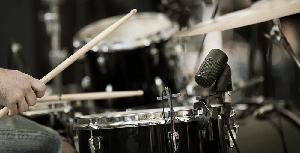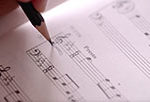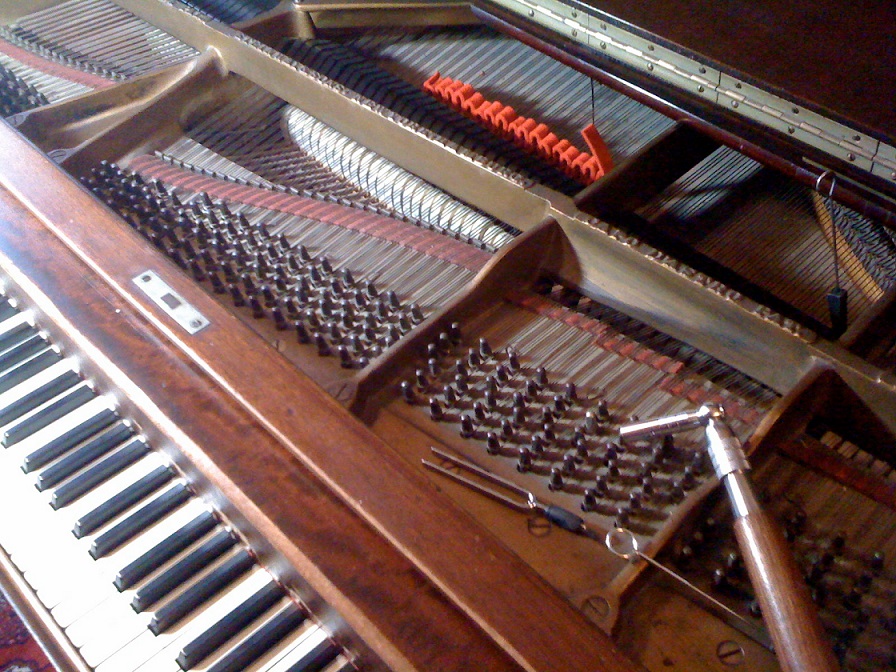
What is the importance of piano tuning? When should I tune my piano? Is piano tuning really necessary? If you’re a pianist or intending to purchase a piano, you’ve most likely asked yourself these questions a couple of times.
Many seasoned pianists don’t give much thought to these questions and simply have their pianos tuned twice a year, as advised by most experts. Few bother to inquire further about the importance of piano tuning. After all, the thought of adjusting the tension of each string in the piano can be quite boringly technical and altogether inconvenient. While engaging the services of a professional piano tuner twice a year does work for most piano owners, it isn’t always that simple. After all, the piano is a complex music-making machine with numerous moving parts; there are exceptions when it may be prudent to tune your piano more often. In this article, we will ambitiously attempt to impart all there is to know about piano tuning, so that you will understand everything you need to know about why and when your piano should be tuned.
Why would a piano go out of tune?
Before learning more about piano tuning, it is essential to understand how pianos work. When you press the keys of a piano, a hammer corresponding to each key strikes its specific string(s). Sounds are produced when these strings vibrate. The tensions of these strings will affect the frequency of the sound waves produced by them, which determine the pitches of the sounds played. The tighter the string, the higher the frequency and pitch of the note; the looser the string the lower the frequency and pitch of the note. A piano which is perfectly in tune has every string at tensions that produce sounds that correspond to a set standard of frequencies. The most common standard is A-440, in which the A above middle C vibrates at a rate of 440 Hz (or 440 times per second).
When the strings of a piano have altered tensions and do not vibrate at correct frequencies, the piano goes out of tune. Furthermore, the strings usually become out of tune to different extents, such that the intervals between the tones become uneven. There are many reasons why the tensions of the strings could change, including temperature changes, humidity adjustments, as well as wear and tear.
Why should I tune my piano?
Most of us know that tuning is healthy for our pianos, but aren’t exactly sure how significant the benefits are. We introduce three compelling reasons why you should tune your piano:
It keeps your playing in tune (well obviously…).
It’s a no brainer that pianos that are out of tune sound unpleasant. And pianos go out of tune easier than we think. Minor daily fluctuations in temperature and humidity can affect the tension of the strings. Even if we don’t play the piano and leave the strings in their pristine states, environmental changes are enough to cause the strings to tighten or loosen. To exemplify how bad an out of tune piano can be, the video below shows renditions Bach’s Prelude in C on the same piano, before and after it gets tuned.
To avoid sounding like the badly tuned piano in the video, regular tunings are needed to recalibrate errant strings. Think of it like drawing a blueprint of a building. If your ruler is calibrated poorly, your drawing will be incorrectly scaled. Likewise, your chords will sound off if your piano is out of tune.
Apart from rectifying strings gone out of whack, regular tunings also build the strength of the strings. Stronger strings are less susceptible to tension changes. Hence, with regular tunings, pianos can stay in tune for a longer time.
In addition, players usually discover that the touch and sound of the piano changes with every tuning session. This is how the piano should actually feel and sound. With regular tunings, players will get accustomed to the “right” feel and sound of the piano.
It keeps you (the player) in tune.
If a player gets accustomed to the “wrong” feel and sound of the piano, he will develop an erroneous sense of harmony, much like how your sense of what 1cm is would be inaccurate if you relied on poorly calibrated rulers. For players who wish to develop perfect pitch, practicing with a perfectly tuned piano would go a long way to aid learning.
It saves you money and might even leave you richer.
With regular tuning sessions, potentially serious problems with pianos can be diagnosed and nipped in the bud early, before they deteriorate further and become costlier to remedy (more on that later). A well-maintained piano has superior resale value and can even become an appreciating asset if kept for a long time.
How do I know when my piano needs to be tuned?
For most beginners, it’s hard to tell if your piano is out of tune by ear. If you can clearly hear problems such as persistent scratchy and twangy noises, your piano likely warrants some serious attention.
There are however some simple methods to check if your piano is in tune. Now that we live in the 21st century, there are numerous mobile apps, such as ClearTune, TonalEnergy, and Tunable, that can check the pitch of the piano tones. Some digital metronomes have similar functions as well. Another easy way to detect tuning problems is to play several octave chords. If the piano is out of tune, it’ll be obvious that the notes sound off key.
Nevertheless, instead of waiting for your piano to develop issues, you should ensure that your piano gets tuned regularly.
Alright then, how often should I tune my piano?
The answer to this is somewhat complicated. Generally, once a year is the (very, very) bare minimum. There are three factors to be considered when you determine how often a piano should be tuned.
Age of piano
New pianos usually need to be tuned four times for the first year. As a new piano gets broken in, its strings are very prone to stretching, while its wooden parts settle in place. Regular tunings will help the piano reach a stable equilibrium that is also in tune. This equilibrium typically takes around a year to stabilize.
Once this equilibrium is reached, pianos still need to be tuned regularly to correct for environmental changes as well as wear and tear. Most manufacturers recommend that pianos be tuned at least every six months.
Purpose of piano
Pianos that are played often and with great intensity (think great virtuosos aggressively striking the piano keys) need to be tuned more often. Like how a sprinter’s shoes get worn out faster than your Average Joe, the forceful and frequent striking actions on the strings will cause their tensions to change much faster. Hence, if the piano is used for frequent concerts, it should be tuned once a week. If the piano is meant for personal use, it should be tuned every three to six months. As for a piano that’s hardly used, tuning once a year may be sufficient.
Weather conditions
If your piano is placed in a location with frequent fluctuations in temperature and humidity, it will need to be tuned more often. Changes in temperature cause strings and wooden parts to expand and contract. On the other hand, changes in humidity mean that the concentration of moisture in the air changes. When the concentration changes, the sound board inside the piano moves, causing the strings to be either tighter or looser. With the tensions of the strings altered, the piano will go out of tune. Therefore, should you live in a place with volatile climatic conditions, consider tuning your piano every three months (in line with the four seasons).
How much does it usually cost to tune a piano?
The market rate of a piano tuning session depends on where you live. In the US, it’s about 100 USD per hour. In Singapore, it could be as low as 50 USD per hour. On average, a tuning session lasts one and a half hours. Tuners typically charge more for grand pianos than upright pianos as well. If your piano is afflicted with serious issues, you may need to hire a full-fledged piano technician who is capable of more advanced repair techniques to restore the sound of your piano. These complicated procedures usually incur extra costs.
For example, if your piano becomes exceedingly flat, it will be impossible to perform a standard tuning. Each string must have its tension increased greatly, which places a good deal of strain on the piano’s structure. As each string is corrected, the immense load placed on the piano body alters the pitch of the other strings once again, rendering previous corrections ineffective. When this happens, at least one pitch raise (adjusting each string closer to its desired tension) must be executed first, before commencing piano tuning.
Piano tuning seems a little expensive, can I tune my piano myself?
You may consider tuning your piano yourself, but only if you are willing to invest a good deal of time and effort to learning the art of tuning. Professional piano tuners take a long time to develop their craft. They attend courses and sit for examinations to get certified by the Piano Technicians’ Guild. Furthermore, attempting to tune your own piano without prior experience puts your piano at considerable risk of having its strings snapped and components broken. If that happens, the repair work will probably cost a lot more than a simple tuning session.
If you’re really interested in learning how to tune your own piano because you think it’s a cool skill to have, there are free guides available on the Internet. You’ll also need to purchase some tools, including a tuning fork, a tuning wrench, and a wedge to isolate strings. However, if your motivation lies in saving money, it’d still be wiser for you to engage a professional.
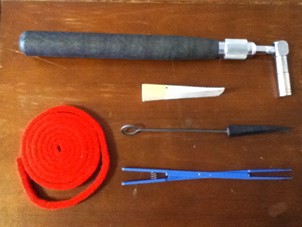
Okay, then how should I take care of my piano to minimize the need for tunings and repairs?
Apart from regular tuning sessions, you can consider the following:
Regulate humidity and temperature
Be sure to use a piano heater and leave it on all the time. This keeps the internal temperature of the piano constant and prevents condensation on the surfaces of the piano. If condensation collects inside the piano for extended periods of time, the strings could get rusty while the wood may even start to decompose.
Your piano should be placed away from windows and direct sunlight. Preferably, the straight side of the piano should be placed against an inner wall, a location which has the added bonus of making the piano sound better.
Your piano should also be kept away from heating and air vents, the kitchen as well as bathrooms.
Avoid moving the piano if possible
Each time you move the piano, the position of the soundboard will change. This causes the pins holding the strings in place to turn and alter the strings tension. If you must move the piano, have one person stand at each leg and lift the piano together, and then move it slowly and with great care. It is recommended that you get a professional tuner to assess the piano after each move.
Ending note
If taken care of well, pianos can enjoy great longevity relative to other instruments. Most pianos can last up to fifty years, with some even reaching up to a hundred! Ensure that your piano gets regular tuning and you might have yourself a family heirloom lasting for generations.
Raring to play the piano like a pro?
Start learning with our 30-day free trial! Try our piano courses!About Liberty Park Music
LPM is an online music school. We teach a variety of instruments and styles, including classical and jazz guitar, piano, drums, and music theory. We offer high-quality music lessons designed by accredited teachers from around the world. Our growing database of over 350 lessons come with many features—self-assessments, live chats, quizzes etc. Learn music with LPM, anytime, anywhere!


